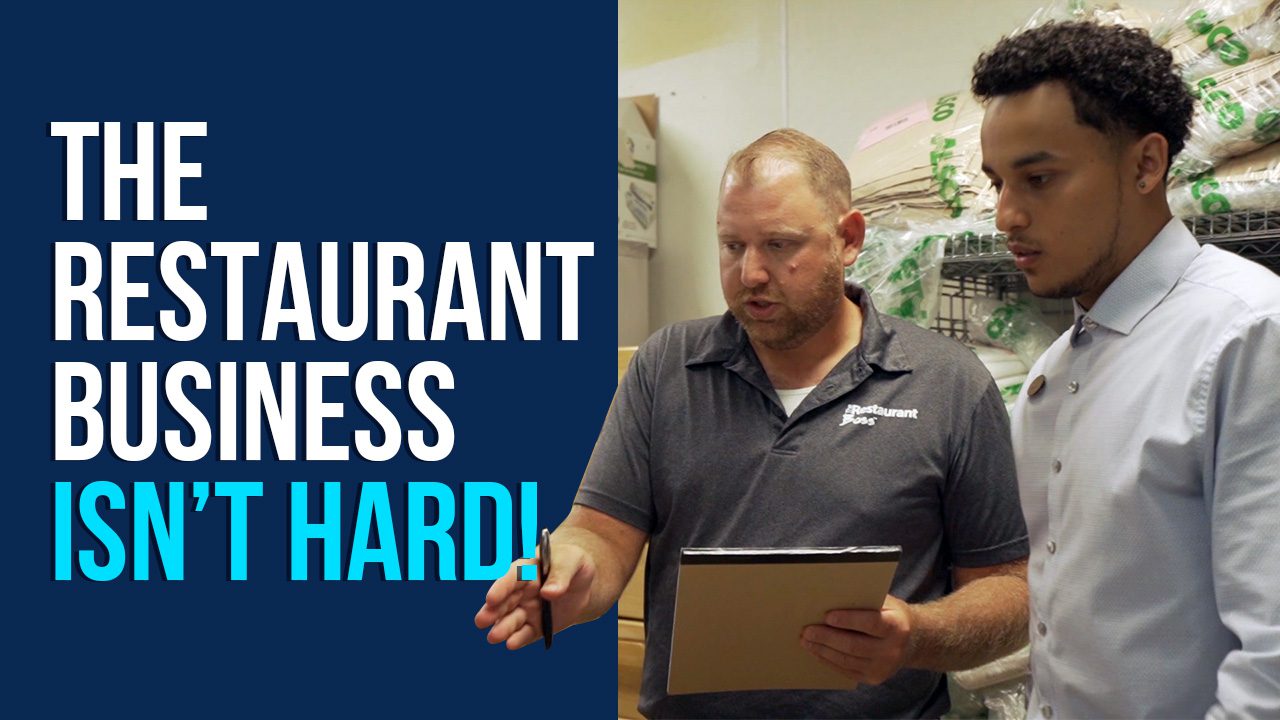Are You a Passive Aggressive Restaurant Manager
Are you a passive aggressive manager? You know, the kind that leaves subtle hints to avoid conflict versus tackling the issue head on. This video is for you!
Read the Video Transcript by Clicking Here...
Introduction:
Has an employee ever walked into your office or pulled you aside and said, “Hey! Can we talk later?” You reply, “Sure, no problem!” Then they respond, “You know I’ve been working here for six months (or a year) and I haven’t had a raise yet. I really think it’s time. My performance has been great. What do you think, can I get a raise?”
In your head, you’re nearly passing out. Like in a cartoon, your jaw drops to the floor, your eyes get big, and you’re thinking: You’re one of the worst employees I’ve got. I’m seriously about to fire you and here you are asking for a raise. That used to happen to me and I hope that’s never happened to you. But I feel like it probably has because I talk to a lot of people who say that it did.
What causes this to happen?
What causes such a big space (disconnect) between where we think our employees are and where they think they are? A lot of this stems from passive aggressive behavior. From backing off and then waiting until the problem is so big that you just overreact. Perfect examples of this would be if someone didn’t clean something properly or left something out on the counter. In the morning you come in, take a picture of it, and text them.
That is passive aggressive behavior…that is avoiding conflict. If your employee didn’t do something on a checklist, simply circle it, highlight it, or put a post-it note on it and wait for them to come in and see it. If you put post-it notes in the walk-in for things that aren’t labeled properly, this is also passive aggressive behavior. I know why we do it – to avoid conflict. Nobody wants conflict and I get that. But the challenge is when we avoid little tiny conflicts, the issue gets bigger and bigger to a point where you just lose it one day and snap.
The thing about conflict is it’s okay if we do it right. It’s not even conflict; it’s just honesty and reality. If someone isn’t doing something well or made a mistake, let them know. It’s okay to offer criticism so long as we’re doing it in a constructive manner or in a manner we’re you are being positive and encouraging better behaviour. Never being mean. You often hear me say, “You can be strict, but you can never be mean.”
Don’t be Passive-aggressive
The biggest issue with passive aggressive behavior and avoiding conflict is that we miss out on an important learning lesson possible. When people change their behavior, it’s mostly because they don’t want to disappoint someone else more than they don’t want to disappoint themselves. Often people will treat themselves worse than they treat others. Think about the kind of words that you say about yourself: how negative and mean you are to yourself. You say things to yourself that you would never say to anyone else. We don’t want to lose the respect of people we respect. We don’t want to disappoint people that we respect now. This doesn’t really work if you don’t have your staff’s respect (more about that here). The more passive aggressive you are, the less respect you’re going to get.
When you send your employee a picture of something left on the counter instead of just going up to them face to face, addressing it, not making a big deal about it and being honest we have now flipped the switch. Instead of that honest conversation saying, “Hey Steve, I noticed last night you left this out. When you leave this out, it goes bad and we have to throw it out. That costs the restaurant money, plus we have to re-prep it. You can see how this is really a challenge now, we have to be much more careful at night to make sure we put all this food away right? What do you think we can do better next time to make sure this never happens?” Then thank them for their time. This method is part of my five step feedback.
When you do that, they respect you. They understand that you care about them, that you’re being a team player, and that they made a mistake. But when you take a picture of the mistake and send it to them, they’re now pissed off at you and even though this was their fault, you have flipped it. You’re bothering them on their time off, you’re annoying, etc. Instead of you having some power over the employee in a positive way, you have now angered the employee and they’re losing respect for you even though this was their fault.
Summing it up:
Step up to the plate, own the situation, be a boss, and take on conflict head on. It won’t even be a conflict if you address issues using my five step feedback formula. But do not be passive aggressive, do not avoid conversations, do not say “I’m just going to send this text message, put a post it note up, circle this on a check list,” instead of having that one on one powerful respectful conversation with your staff. It will go much further if you build the skills to have that conversation. I hope you enjoy this week’s video and I look forward to bringing you another one just like this next week.
Read More
Running a Restaurant Isn't Hard
The #1 complaint in restaurant management is poor employee performance. If you’re not following this simple 5-step plan to train your employees, you’re never going to get the results that you want from them …ㅤㅤㅤ
Busy Is Killing Your Restaurant
Are you busy? There are things you’re doing all day, every day in your restaurant and it’s those things that are going to put you out of business. There are 4 things you can do today to battle the busy inside your restaurant …
Follow For More:









